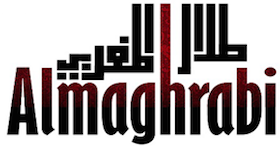Share the post "The Spiritual Journey To Makkah: Re-Promote The Greatest Civilizations The World Has Ever Known"
The Spiritual Journey To Makkah: Re-Promote The Greatest Civilizations The World Has Ever Known
3rd International Colloquium on Place Management, Marketing and
Nation Branding
8th and 9th September 2011,
Lincoln Business School, University of Lincoln, Lincoln, UK
Talal Al-Maghrabi
International Training and Development Academy, Centre for Research in Marketing (CREAM)
West London, UB8 3PH, UK, talal.almaghrabi@brunel.ac.uk , talalalmaghrabi@yahoo.com
Charles Dennis
Lincoln Business School, University of Lincoln: cdennis@lincoln.ac.uk
For any destination to operate as a solid, sustainable tourism economy the fundamentals of good business practice must be in place. Consistency of supply and demand is critical. In the case of a tourism destination, this requires a year-round experience, thereby creating year-round appeal.
However, this has not applied to Mecca (officially spelled Makkah). Since the day Abraham asked his wife “Hajar” to get her son “Ishmael” and prepare for a long journey to the Arabian Peninsula, through an uncultivated valley with no life or water, this site has had several advantages: a well (the Zemzem) of great depth, and two ancient caravan routes (from Africa to Iran and Central Asia, and from India to the Mediterranean world). Another significant advantage of Makkah is its importance as a religious sanctuary, where an ancient temple stood near the well, known as the Kaaba (cube). In the sixteenth century, Prophet Muhammad chose Makkah to become the spiritual and geographical focal point for all Muslims as the holy city of Islam and the direction (qibla) in which all Muslims should offer their prayers.
Each year, during Dhu’l-Hijja, around 2.5 million (in 2010) Muslims from around the world join a pilgrimage to Makkah (the Hajj), in fulfilment of one of the Five Pillars of Islam. Another 7 million also perform the minor Makkah pilgrimage (the Umrah) at various times throughout the year. For most Muslims, this is a spiritual renewal event of a lifetime.
Spirituality has recently become an important area of sociological and business research (Cochrane, 2009) and gained high significance among Muslim communities around the world (Francesconi, 2009). However, this has affected various businesses and markets (Brownstein, 2008). Tourism, one of the most significant growth industries (Rosentraub and Joo, 2009), has also been influenced by this upsurge in spirituality (Andriotis, 2009).
In Islam, religious and spiritual journeys are divided into three types: hajj/umrah (the obligatory (if possible) visits for all Muslims to Makkah and Medina (Haq and Jackson, 2009)); rihla (journey in search of knowledge, commerce, or research (Kessler, 1992)); and ziyara (journey to visit the shrines or mosques for spiritual growth (Timothy and Iverson, 2006)).
Tourism organisations have aggressively marketed a variety of products and services at national and international levels. However, regardless of the potential, there is a lack of empirical research in spiritual Islamic tourism marketing (Li and Petrick, 2008).
Since Islam produced one of the greatest civilizations the world has ever known, Saudi Arabia, in general, and Makkah and surrounding cities should take advantage of the year-round appeal to create and organise international festivals, seminars and conferences to draw Muslims and non-Muslims together to integrate their professional, spiritual and intellectual capabilities. These activities facilitate non-Muslims to take part in Muslim functions, creating awareness for non-Muslims about Islam and an opportunity to market spiritual tourism.
Thus, establishing special interest (niche tourism) spiritual tourism is fundamental in establishing competitive, visionary destinations.
Furthermore, evidence from the National Brand Index shows that preference for a country and its people, politics, culture, and products tends to increase as a result of any personal experience of at least one visit to that country, even if the holiday experience is not positive. Creating niche tourism for Hajj and Umrah is a great opportunity for Saudi to become a leading tourist destination as well as providing a measurable improvement in the country’s overall international image.
Source: 3rd-international-colloquium-on-place-management-marketing-and-nation-branding






